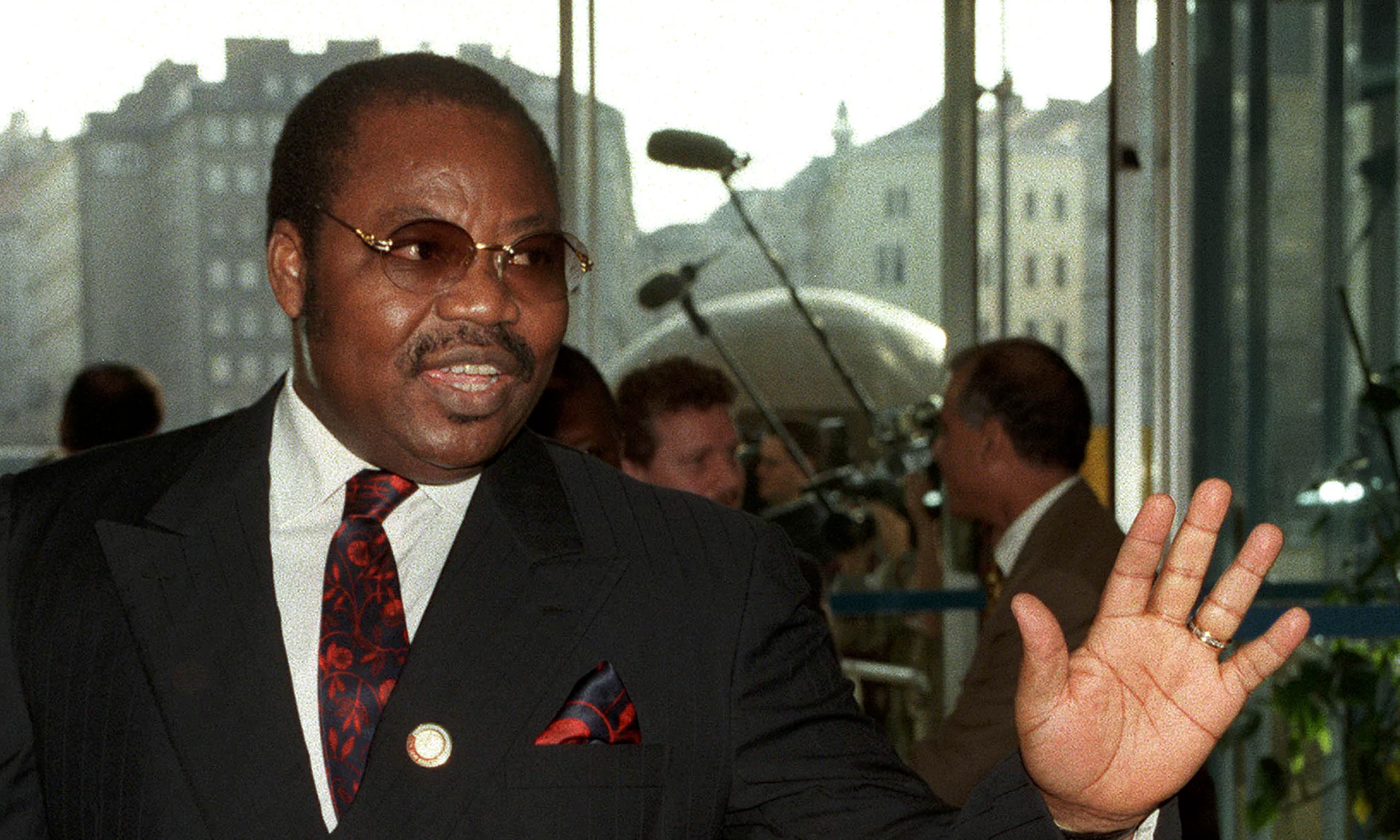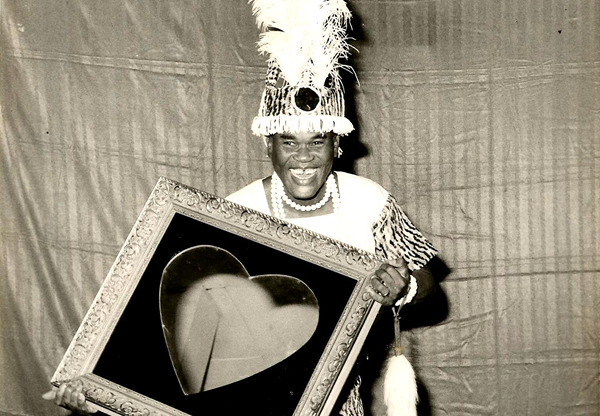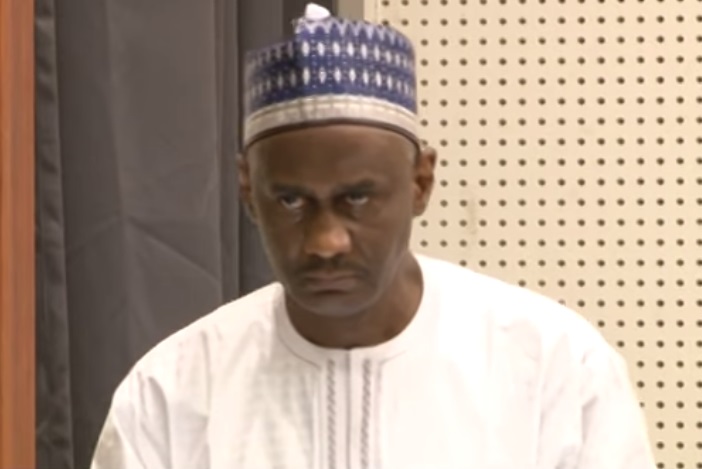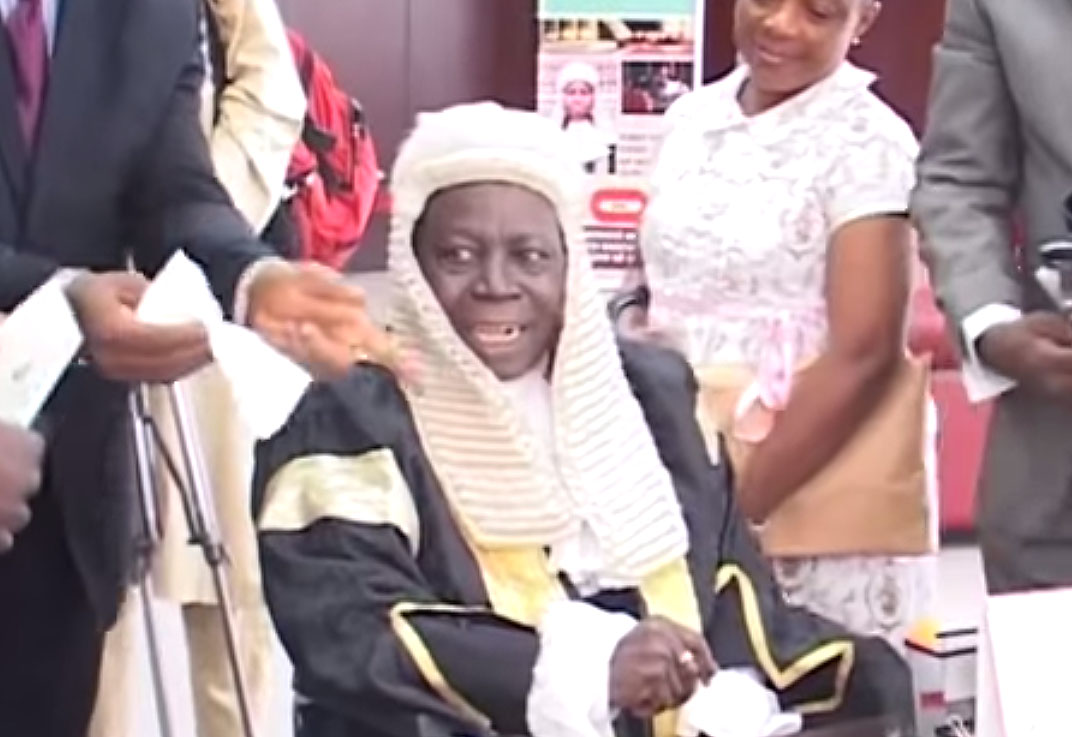By Majeed Dahiru
Saturday, the 14th day of July, the peace and serenity of the government reserved area of Okene town in Kogi state, was disturbed when a combined team of security agencies raided the country home of Mohammed Bello Adoke, former attorney general and minister of justice of the federation. This is the fourth in the series of raids on his known residences in Kano, Abuja and student apartment in the Netherlands. These raids are in connection with his criminal prosecution for his alleged role in the controversial Malabu oil affair. This latest raid like previous ones did not yield anything because no incriminating document was recovered and not a pound, dollar or naira was found anywhere in these properties including, in the overturned overhead water tanks and sceptic tanks.
The man in the centre of the Malabu oil affair, has consistently maintained his innocence by admitting no wrong doing in the discharge of his legitimate duties as a minister as delegated to him by the president and commander in chief. Therefore, the criminal prosecution of Bello Adoke despite his insistence of innocence has further deepened the mystery shrouding the entire Malabu oil affair. In resolving the mystery that is now the Malabu oil deal, it is important to look beyond the plethora of opinions being promoted by the various interested parties in the public space by distilling facts from fictions in order to have a true picture of how a huge chunk of Nigeria’s oil mineral resources was mismanaged.
Sometime in 1998, the former head of state Sani Abacha awarded OPL 245 to a company known as Malabu Oil and Gas Ltd. However, this was not an ordinary government business transaction, because the first family through their eldest son, Mohammed Abacha, who is listed as a shareholder in Malabu oil as Mohammed Sani, had a substantial—up to 50% interest in the oil block. Another shareholder by the name Kweku Amafegha, was also discovered to be a fictitious name that in reality represented the personal interest [30%] of the sitting minister of petroleum, Dan Etete at the time of the award of OPL 245 to Malabu oil. Clearly, a sitting head of state and his minister of petroleum through a grand scam appropriated a sizeable chunk of Nigeria’s oil and gas resources to themselves in the worst case of nepotism and conflict of interest in Nigeria’s corruption history. The signature bonus on OPL 245 was fixed at $20m but only $2m was paid by Malabu oil. Shell petroleum was promptly engaged as a technical partner to Malabu oil in the operation of OPL 245.
Following the death of Sani Abacha and the subsequent inquisition into the massive looting of Nigeria’s treasury under that rogue regime by the succeeding administration of Abdulsalami Abubakar, the former first family cleverly concealed their interests in Malabu oil in clear violation of decree 53, which mandated them to declare all assets corruptly acquired from Nigeria’s common patrimony. By this time, Dan Etete had emerged from the shadows of the fictitious character of Kweku Amafegha to assume full ownership and control of Malabu Oil’s OPL 245 and acting ostensibly as a front for the former first family.
Advertisement
Following the transition to civil democratic rule in 1999 and president Olusegun Obasanjo’s reorganization of state structures and institutions by scrutinizing some policies, programmes and actions of previous administrations, the hammer fell on Malabu oil when in 2001 OPL 245 was revoked and re-awarded to no other entity than their technical partner, Shell petroleum. Following a series of legal actions taken by Malabu oil against the Obasanjo led federal government to reclaim its title over OPL 245, both parties eventually resolved to enter into an out of court settlement, which was further solidified when all agreements were reduced to a consent judgement that was legally binding on all parties by 2006. The high point of the 2006 agreement was the full restoration of OPL 245 to Malabu oil and this was given life by a letter of conveyance to that effect dated 2nd December 2006, written by the federal ministry of petroleum and signed by Edmund Daukuro, Obasanjo’s minister of state for petroleum. This agreement between the Obasanjo led federal government and Malabu oil effectively converted the 1998 scam into a deal that was legally binding on Nigeria. However, this was just the beginning of what was going to be a prolonged and complicated business transaction.
The Obasanjo administration’s mismanagement of the entire Malabu oil led to that complication, arising from its poor judgement of all matters arising therefrom. Following the restoration of OPL 245 to Malabu oil, Shell petroleum that was initially awarded the oil block headed to the International Centre for Settlements of Investment Disputes ICSID, in Washington claiming $2b in losses against the federal government arising from its huge investments at de-risking the huge hydro-carbon reserves in order to make it commercially viable. The Obasanjo administration and that of the short lived Umar Musa Yar’Adua could not resolve this complicated web of conflicting business interests until 2011 when the
Goodluck Jonathan administration lived up to the federal government’s responsibility of implementing the 2006 agreement, by applying an alternative dispute resolution mechanism that was guided by former AGF Mohammed Bello Adoke as the chief law officer of the country. In what is known as the resolution agreement of 2011, Malabu oil agreed to give up its stake entirely in OPL 245 in exchange for the sum of $1.3B, which was the premium price of the oil block to be paid by Shell and ENI. After the deal was brokered, all went quiet and it was hoped the last of Malabu oil affair had been heard.
Advertisement
This was not to be, as the successful resolution of the various disputes over OPL 245 has been trailed by controversies, half-truths, denials, outright lies, accusations and counter accusations. Contrary to the impression in the public, this money [$1.3b] was not paid to Malabu oil from the federation account. The money was a private investment capital from Shell petroleum, which was only domiciled on behalf of all parties to the deal in an escrow account with JP Morgan and paid to Malabu oil for the purpose of total acquisition of the oil mineral asset; a transaction that Malabu oil was empowered to do in line with the 2006 agreement that restored to it, full ownership of the OPL 245.
Essentially, the Malabu oil deal was a private business transaction between two entities with the federal government only acting as a mediator in a dispute it actually created, because neither OPL 245 nor the $1.3b belonged to the federal government. All the federal government was entitled, was the signature bonus which was fixed at $210m that was promptly deducted from source. From available documents in the public space, the deal went through the due process diligence and inputs from all relevant stakeholders including ministries of petroleum resources and finance and DPR with all approvals sought and received from the president and commander in chief. The Malabu oil deal was simply making the best of a messy situation, created by the Abacha and Obasanjo administrations. Interestingly, this agreement achieved the twin important objectives of freeing the hydro carbon resource rich oil block for commercial utilization and saving Nigeria from the possibility of paying the sum of $2b in penalties as claimed by Shell.
The current characterization of the Malabu oil deal as a fraud and the consequent stigmatization of Mohammed Bello Adoke, as its poster boy have only obscured the facts of the matter while promoting fictions that have further mystified the whole affair. The Malabu oil deal is not so different from the business transaction between TY Danjuma’s South Atlantic Petroleum, when $2b was paid by Chinese investors for a sizeable stake in its OPL 246. Similarly, Folorunso Alakija became the richest woman in Africa when her company, Afamfa oil received from Chevron a huge amount of money for a divested stake on their Agbami fields oil block. In each of these cases only the fixed signature bonus was paid to the federal government. In both cases the signature bonuses paid to the federal government was fixed at $20 million only. Therefore the criminal prosecution of Bello Adoke for his role in brokering the Malabu oil deal is nothing but persecution in a war on corruption that is selective and highly politicized.
There is no doubt that all is not very well with the Malabu oil affair. However, what is wrong is not the role of the former AGF Bello Adoke in the implementation of an agreement that was entered into by the Obasanjo administration, which was binding, but the allocation of the oil block in the first place by the Abacha family to a company it had interests in. Until nepotism and conflict of interests, which are the fundamentals of corruption are criminalized unambiguously in our laws, the war on corruption has not even begun.
Advertisement
Dahiru, a public affairs analyst, can be reached via [email protected].
Views expressed by contributors are strictly personal and not of TheCable.
Add a comment






